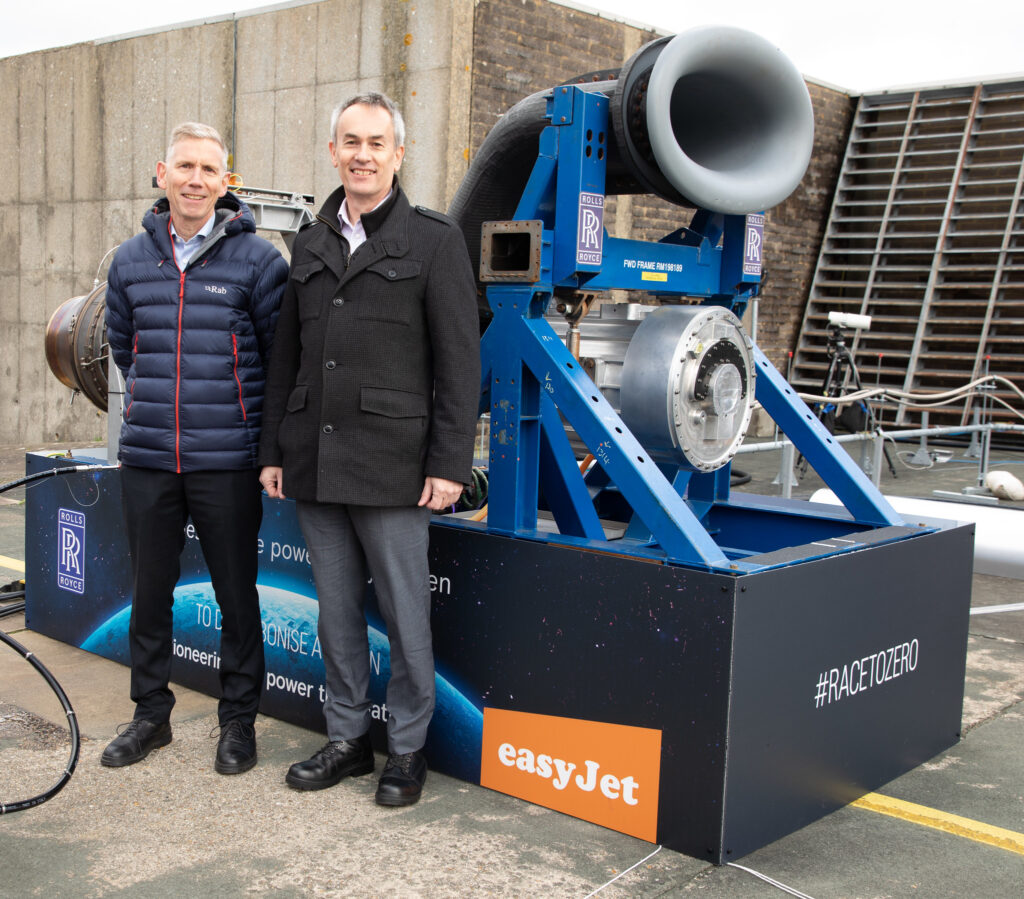Rolls-Royce has successfully used hydrogen as an energy source for a modern jet engine instead of traditional jet fuel, a world first in the aviation industry.
The ground-based test at the Boscombe Down Government Test Facility used green hydrogen produced by wind and tidal energy from Scotland’s Orkney Islands.
Rolls-Royce, in partnership with EasyJet, used a modified AE 2100-A turboprop engine, which powers civilian and military aircraft, to carry out the test.
This is a new step for industrial companies to show that hydrogen can play a vital role in helping companies reduce harmful carbon dioxide emissions that contribute to climate change.
The Race to Zero, supported by the United Nations, has set a goal of zero emissions by 2050, with airlines working to use more sustainable fuels as an alternative to petroleum-based jet fuel.

Aviation is one of the most difficult industries to decarbonize, and technologies such as electric or hydrogen aircraft are still years away from long-haul air transport.
Airbus plans to use the A380 superjumbo to test hydrogen-powered jet engines as part of plans to introduce a zero-emission aircraft by 2035.
The Toulouse-based group is working with CFM International, a joint venture between Safran and Safran of France. General Electric, an American corporation, is working on a hydrogen-powered engine.
The Rolls-Royce-led test, although not involve flying the aircraft, is part of a new hydrogen demonstration program launched by the FTSE 100 group in the summer in partnership with easyJet after research showed hydrogen fuel had market potential airplanes.
Both companies plan to move on to the second series of tests, which in turn will lead to full-scale ground testing of the Rolls-Royce Pearl 15 corporate jet engine.
UK business secretary Grant Shapps described the demonstration as “an example of how we can work together to make aviation jobs cleaner across the country.” Rolls-Royce Technology Director Grazia Vittadini said the test was an “exciting milestone.”
“We’re pushing the boundaries to discover the carbon-free potential of hydrogen, which could help shape the future of flight.”






Leave a Reply